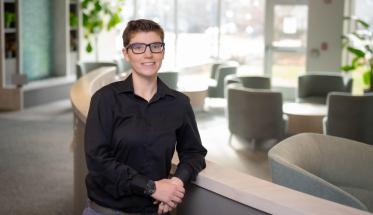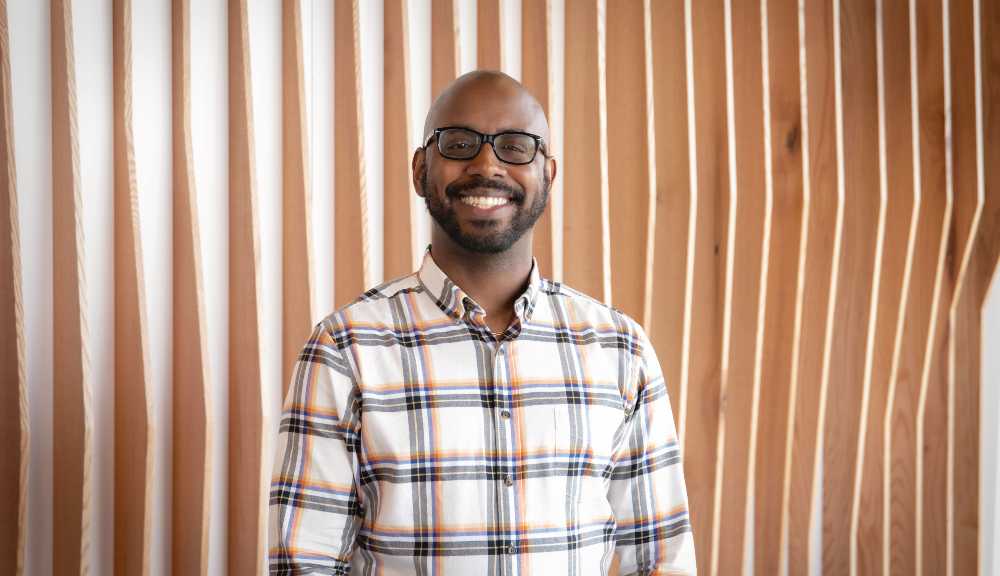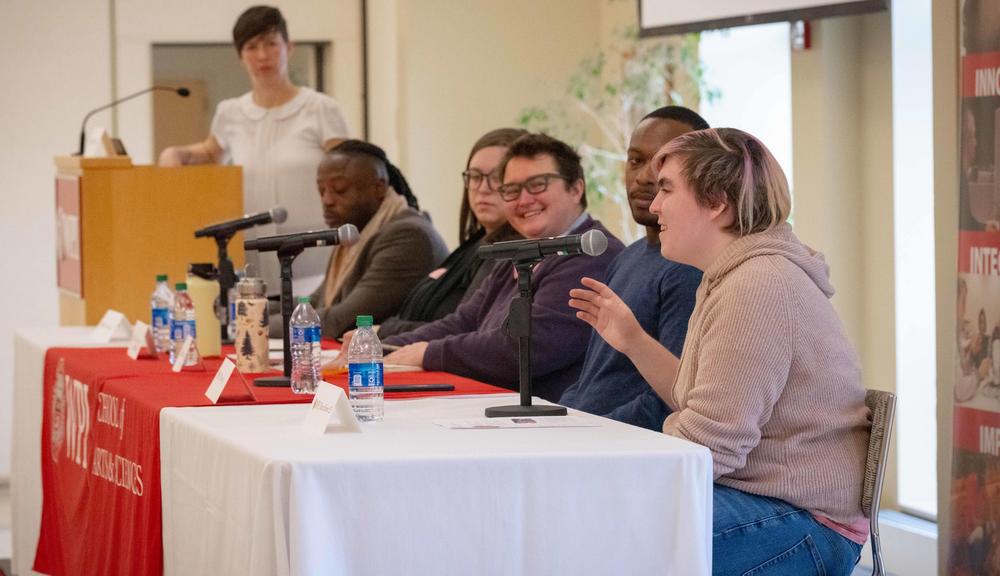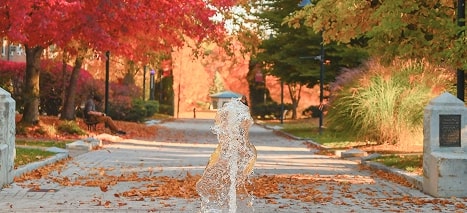Gina Heinsohn (they/them) started as the assistant director of the Center for Well-Being in November 2023. A native of the Chicago area, Heinsohn has a bachelor’s degree in environmental engineering from the Colorado School of Mines, as well as a master’s degree in higher education and student affairs leadership from the University of Northern Colorado and a certification in public health science from the Colorado School of Public Health. Before joining the WPI community, they served as the University of Cincinnati’s mental health program manager.
The Center for Well-Being opened in January 2023 as part of WPI’s holistic approach to wellness, with programming and support available to all members of the campus community. In addition to the workshops, drop-in activities, and wellness and physical education classes offered by professional staff, the Center runs a successful peer ambassador program—which Heinsohn oversees—that trains students to provide meaningful support and connection to other members of the student body.
Q: What attracted you to this position at WPI?
A: The big thing that interested me is that the Center for Well-Being is brand new, so there’s a lot of room to tailor it to what students need and want. The other thing that really attracted me specifically to WPI is the STEM focus. I also went to a small, rigorous STEM-focused institution and my bachelor’s degree is in engineering. I get the vibe at WPI and I know from personal experience that it can be hard for STEM students to talk about wellness in certain ways. I like to say that I can speak STEM, but I can speak health, too. So I’m looking forward to being a bridge or translator for the WPI community.
Q: What have your impressions been so far about wellness and well-being at WPI?
A: First things first: Everyone is super friendly. I’ve lived all over the country, and New Englanders get a bad rap for not being the most friendly people, but I’ve been pleasantly surprised here, even just with how many people take the time to say, “Good morning.”
Beyond that, though, it’s clear to me that WPI students want wellness. The Reiki sessions that we offer are booked out, people are taking the wellness and physical education courses, and students are signing up for peer coaching. I thought I’d have to work more to get students engaged, but I’ve been pleasantly surprised with how receptive they’ve been and how much they clearly want to focus on health and well-being.
Q: What are the most pressing issues related to well-being that you’ll be working on?
A: Three things come to mind right away: sexual and reproductive health education; education around alcohol and substances; and mental health.
There was a session of Sex in the Dark just before I started at WPI in November, and I’d like to build on that in a joint session with the Center for Well-Being and Health Services. Their staff can answer some of the more medical questions, things that I’m clearly not qualified to answer. And then I can bring in more of the public health side of the discussion. We could talk about everything from healthy relationships and consent to more intimate things like, “How do I avoid getting an STI?” or “Should having sex hurt?”—the kinds of questions people are usually afraid to ask. Because if you didn’t have a comprehensive program in high school, when else are you going to be in a safe environment to learn these things?
With regard to alcohol and substances, the Center for Well-Being isn’t here to say, “Never drink.” But we should be having more conversations with students about how to stay safe. And then mental health is always a concern. Specifically, anxiety, depression, burnout, imposter syndrome, and, of course, sleep.





